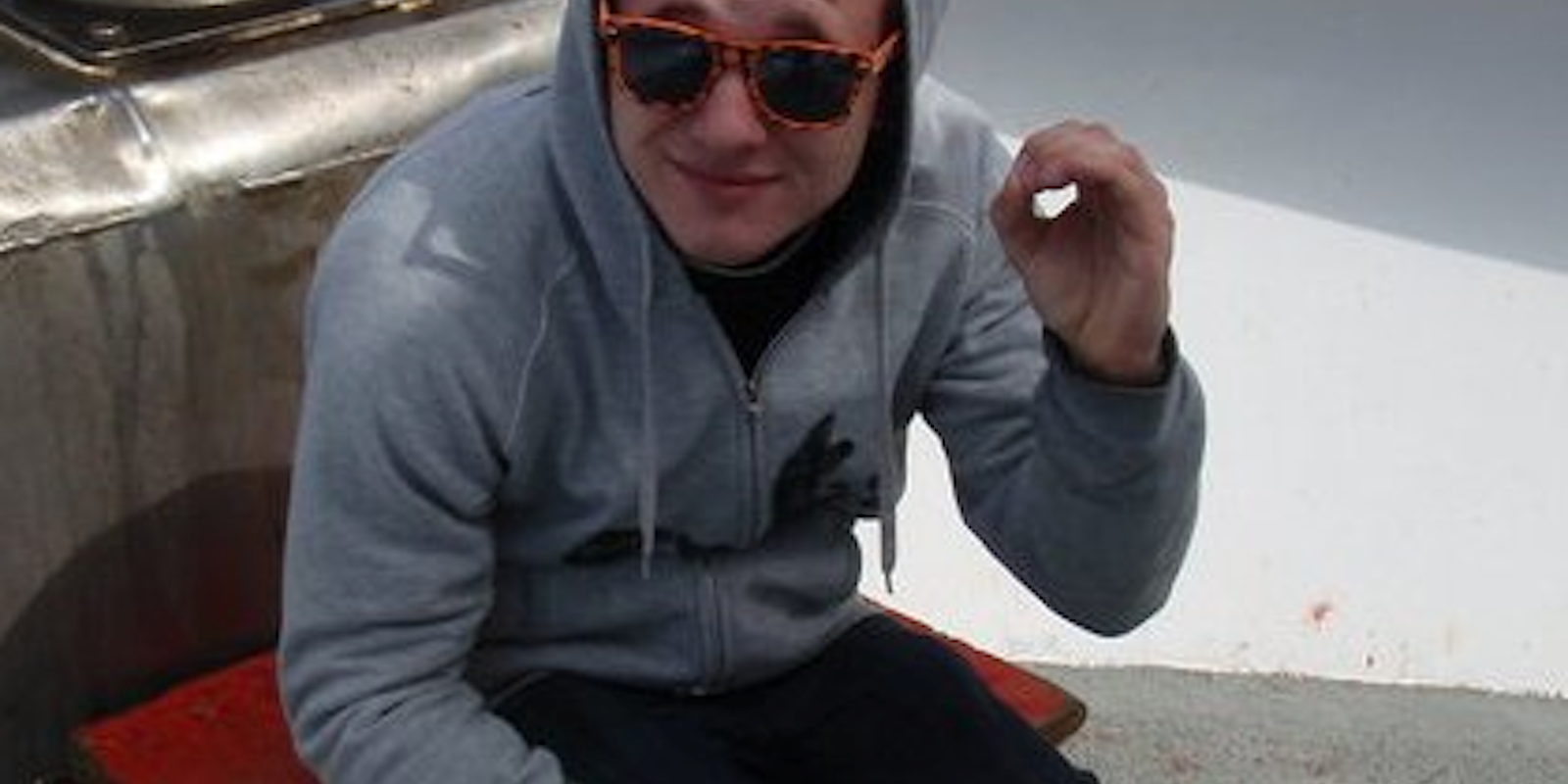Can Kickstarter fund your life? It depends on how you spin your pitch.
Cash Colligan is a Las Vegas-based bassist who spent four years making pop magic happen for Atlantic Records as a member of the Fall Out Boyish outfit The Cab. Colligan split from the group last year, along with drummer Alex Johnson, who moved to Connecticut.
Now, the two are hoping to reunite for another round of over-the-top hooks that make adoring fans scream. Colligan’s got an album’s worth of material written and a precise vision.
There’s just one little problem: Las Vegas and Connecticut are over 2,600 miles apart.
Colligan set up a Kickstarter campaign last week in hopes of raising the $1,500 necessary to bring his buddy back to Sin City. Initial buzz was good, Colligan told the Daily Dot. The campaign raised $145 in its first few days on the site.
But then Kickstarter shut “Alex Johnson & Cash Colligan in NEW BAND in Las Vegas” down.
The problem? The company said Colligan’s project was an effort to fund his buddy’s life.
Specifically, Colligan’s mission violated the third section of Kickstarter’s project guidelines, which state that projects cannot be charity causes (awareness campaigns, scholarships, promoting donation of funds) or “fund my life” projects. Those include projects to pay tuition or bills, go on vacation, or, apparently, fly your buddy back to Vegas so you can start a band.
“Transparency is necessary with Kickstarter,” Kickstarter wrote to Colligan. “People should know where their money is going, every last dime.”
Colligan thought he’d done that; he was transparent enough. He didn’t understand why his was a project Kickstarter would shut down.
“I thought that bringing a band together was a project,” he said. “According to Kickstarter, it’s not, which is completely crap. Proper planning to form the right thing and get the right sound, that’s what being in a band is all about.”
Kickstarter wasn’t having it. The two parties exchanged emails over a seven day span, in which the crowdfunding platform threatened to shut down Colligan’s campaign for good and Colligan tried to find a way to mask the fact that he was going to use fan money to fly his drummer to Vegas.
Then Colligan came up with a simple trick. He rewrote his campaign to include the production of a reality TV show pilot, one that he’d send to networks in hopes of turning his band’s story into a series.
If you look closely at the current project description, you’ll see it—”The money it will take to compile a pilot for a reality TV pitch”—right in between “”now all that is missing is one musician from the equation” and “studio time to complete demos for an album this summer.”
There’ll be a TV pitch, alright. It’ll just get produced after Johnson’s flown home.
“Just because Kickstarter has a certain form and model doesn’t make it fair for them to shut down a campaign if someone gets smart and creative and uses that model for their own good,” Colligan said.
He continued:
“Kickstarter doesn’t mention that they’re taking close to 10 percent [this includes Kickstarter fees and Amazon payment] of what I make off the campaign. I’m really only walking away with $800 after all the taxes and rewards. That’s not a lot of money to bring someone back and get together some demos and do a pilot. But Kickstarter wants to know what the product is. It’s like, ‘What do you want?’ I take $500 and give away $400 worth of stuff? That’s not the point.”
That is, however, the rule, and according to Kickstarter, Colligan has obliged. The change in verbiage—his little clause that details plans for a reality show—earned him permanent acceptance on the Kickstarter board.
“They just sent me an email this morning that said ‘This is awesome now. You’re back on the browser,’” Colligan said.
Flights from Connecticut to Las Vegas cost around $500. Renting out studio space is often double that. We can’t wait to see how this TV pilot turns out.
Photo via Facebook


